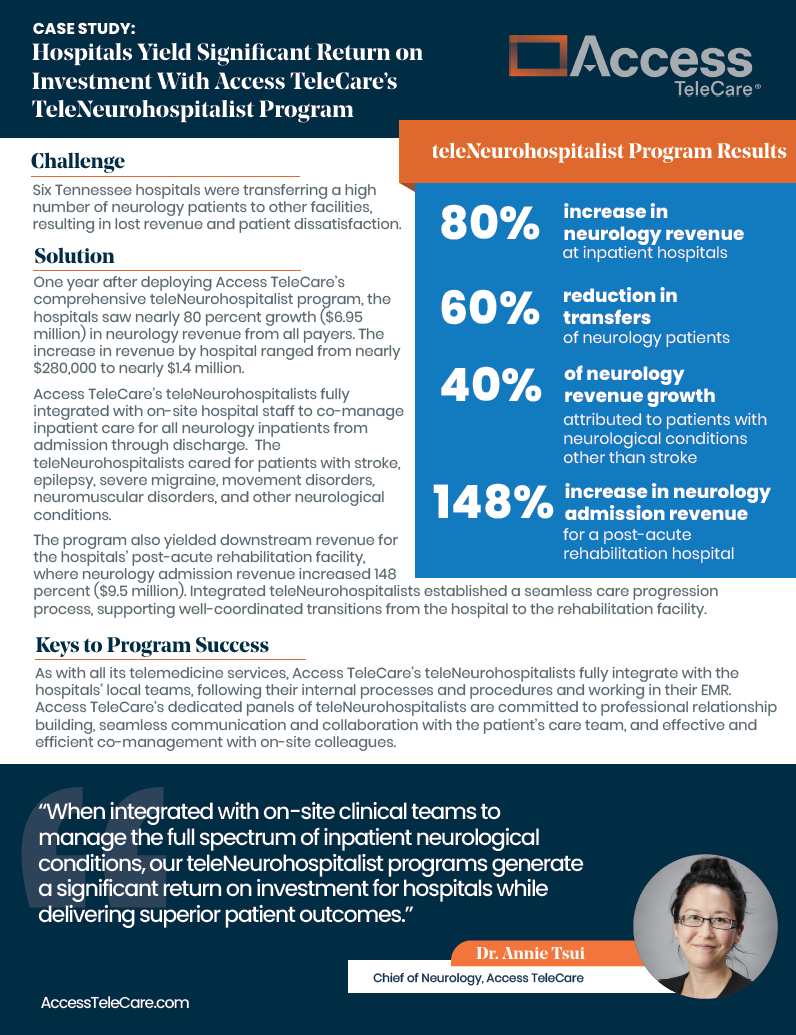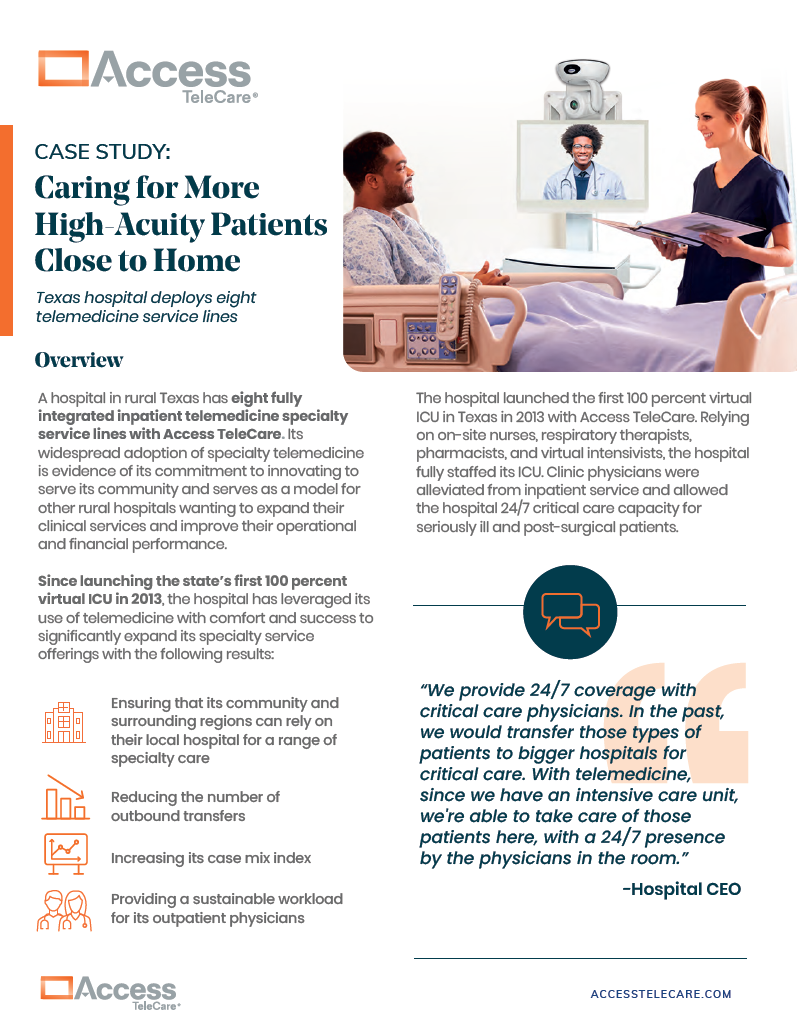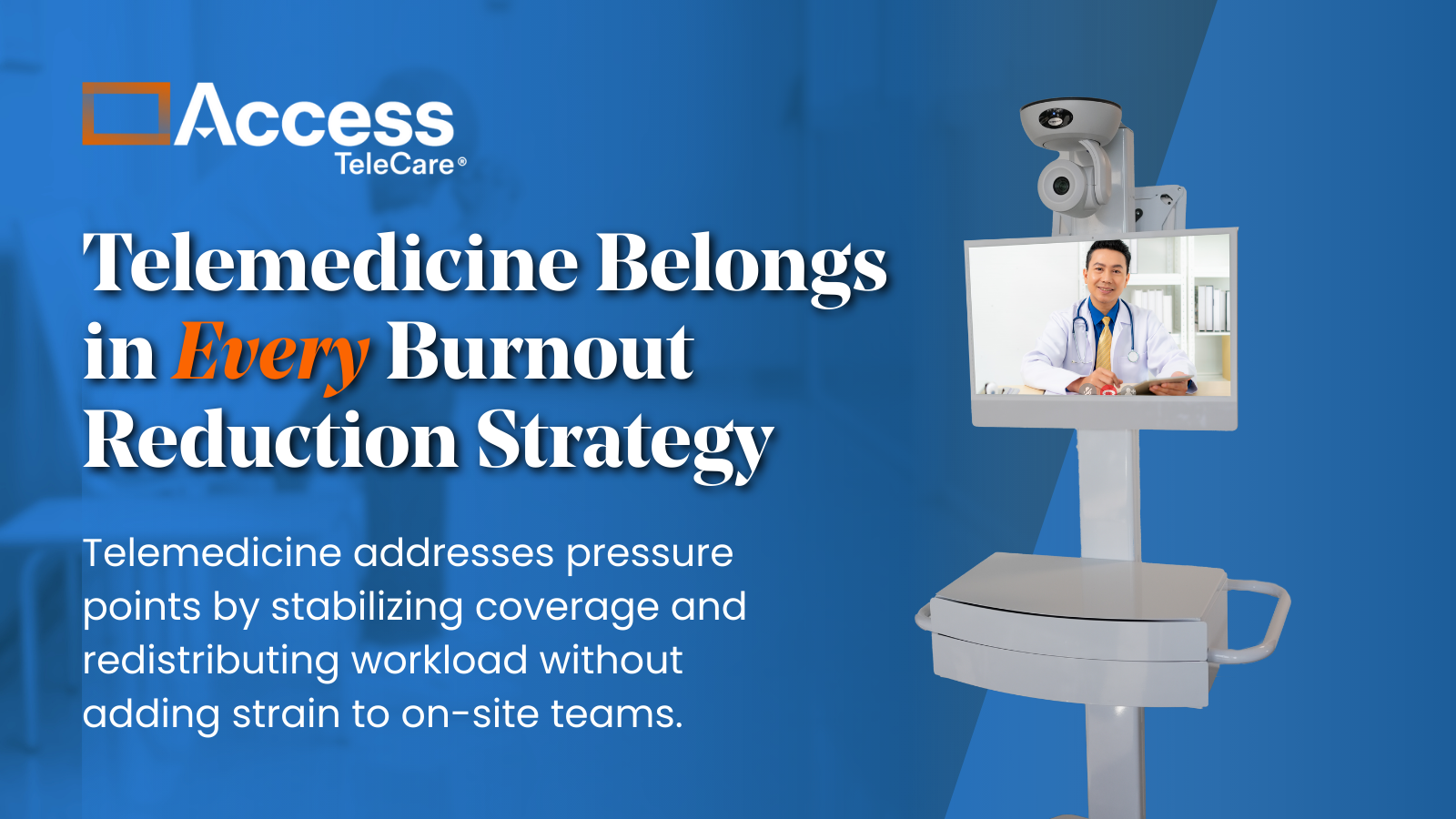Video: Strategies for Overcoming Healthcare Challenges with Telemedicine Experts
For more than two decades, Access TeleCare has operated at the forefront of virtual care delivery, advancing telemedicine as a sustainable, strategic solution for the challenges modern health care providers face. Our telemedicine programs have yielded significant results for our hospital partners and a wealth of insights into the future of health care delivery.
Webinar Key Points
Acute Telemedicine is the Answer to Hospital Financial & Staffing Challenges
Acute Telemedicine is the Answer to Hospital Financial & Staffing Challenges
Telemedicine addresses physician burnout, workforce shortages, specialist availability, access to care, and timeliness of care challenges.
Hospital-based Telemedicine Works for Both Rural & Urban Communities
Hospital-based Telemedicine Works for Both Rural & Urban Communities
Telemedicine can transform care for both rural and urban communities. The webinar focused on our neurology and behavioral health programs.Telemedicine is a Game-Changer for Acute Behavioral Health Care
Telemedicine is a Game-Changer for Acute Behavioral Health Care
ED boarding and wait times were reduced while also improving the patient experience and patient health outcomes.Neurology revenue increased 300% upon adding teleNeurology services
Neurology revenue increased 300% upon adding teleNeurology services
Timely acute stroke care, fast EEG readings, and high-quality teleNeurohospitalist services provided better care and reduced transfers, enabling patients to stay local and get care quickly.
See our Telemedicine Programs in Action
Hospitals Yield Significant ROI with Access TeleCare’s TeleNeurohospitalist Program
Access TeleCare’s teleNeurohospitalists fully integrated with on-site hospital staff to co-manage inpatient care for all neurology inpatients from admission through discharge. The teleNeurohospitalists cared for patients with stroke, epilepsy, severe migraine, movement disorders, neuromuscular disorders, and other neurological conditions.
Caring for More High-Acuity Patients Close to Home
When rural hospitals implement telemedicine, they typically have one, possibly two, service lines. This hospital in rural Texas has eight. Since launching an Access TeleCare teleICU and telePulmonary/Critical Care program in 2013, the hospital continued to expand its telemedicine services.
See more insights from Access TeleCare
Why Telemedicine Belongs in Every Hospital’s Burnout Reduction Strategy
Burnout among physicians is not anecdotal. It’s documented and persistent. According to a recent Commonwealth [...]
Access TeleCare’s 2025 in Review
From Joshua DeTillio | Access TeleCare CEO Through our work together, 2025 was another year [...]
Saurin Patel, M.D., Authors SmartBrief Commentary on a Virtual-First Strategy for Rural Hospitals
Saurin Patel, M.D., chief of hospitalist medicine and emerging service lines, is featured in SmartBrief [...]
For Rural Hospitals, Telemedicine is a Lifeline
Rural hospitals across the country are facing one of the most acute periods of instability [...]
How teleEEG Strengthens Inpatient Throughput and Reduces Length of Stay
It’s no secret that inpatient throughput depends on timely diagnostics. Yet all too often, hospitals [...]
Building a 24/7 Neurological Readiness Model Without Expanding Staff
Hospitals everywhere are trying to solve the same problem: how to maintain reliable neurological coverage [...]





















